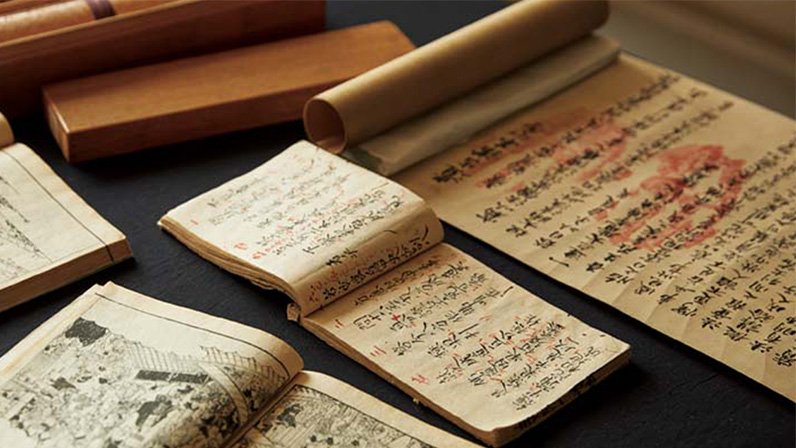Fostering truly cultured people with profound knowledge of the Japanese language and Japanese literature
The objective of the Department of Japanese is to investigate the Japanese language and literature, and ascertain their essence. Students are endowed with an ability to read and comprehend the ancient literature in their original texts, and discover their attraction through the study of the special characteristics and history of Japanese language and literature. Polishing up as a technique the knowledge of the “words” that form the core of human thought, the Department fosters human resources who will be able to tale on the role of relaying Japanese culture’s traditions in the international world, and human resources who become equipped with the basics of sophisticated specialized research and can go on to contribute to academic progress.
*From April 2026 the name of the Faculty of Humanities’ Department of Japanese will be altered to the Department of Japanese Language and Literature.
Features of the Department
A multilateral approach from the aspects of Japanese language, literature
The curriculum is designed to cultivate a broad perspective and creative research attitude toward the Japanese language and literature. To further broaden students' perspectives, we also offer courses in related fields such as Chinese literature and Chinese thought (Chinese literature), library and information science, and Japanese language education.
Cultivating the ability to spontaneously research, consider, and disseminate information
From the first year, students take small-group seminars to strengthen their research, reflection, presentation, and communication skills. Students also acquire writing literacy through classes such as “Writing Expression”.
Active in various fields of society as bearers of language
Words have always formed the basis of human thought, and graduates of our department, who have acquired “language as a skill” over the past four years, are active in a wide range of fields in society. Some students aim to become Japanese language teachers or librarians at junior and senior high schools, while others go on to graduate school to deepen their research.
The four years of study at the Department of Japanese
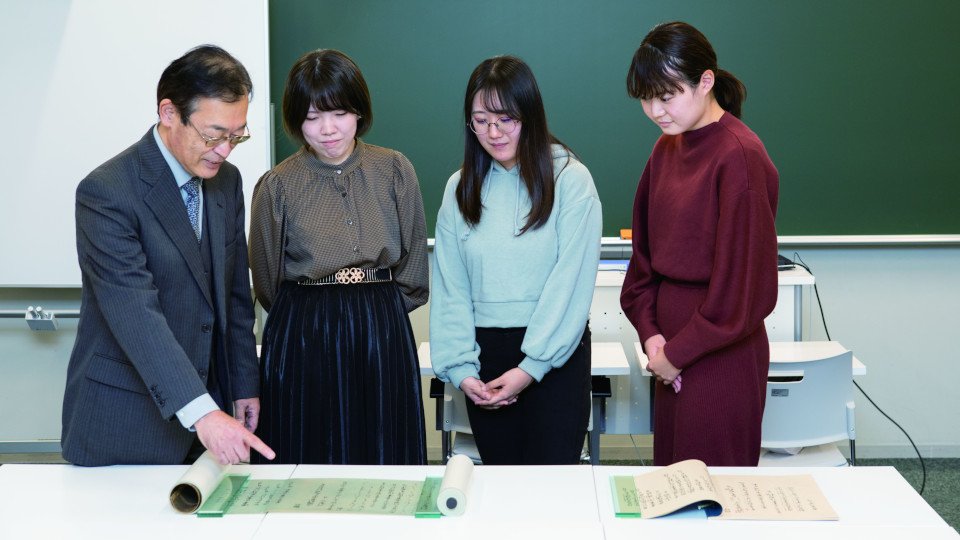
First year: Acquisition of Fundamentals of Japanese Language and Literature
Students will acquire basic knowledge and methodology, focusing on such fundamental subjects as Introduction to Japanese Literature (Classical and Modern), Introduction to Japanese Language, Basic Seminar on Japanese Language and Literature, and Seminar in variant KANA. Students will also begin taking qualifying courses.
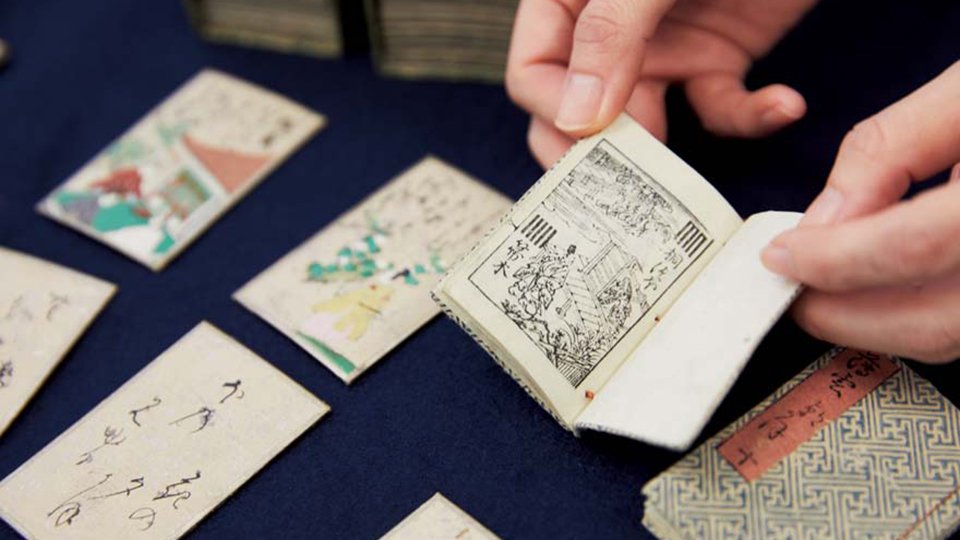
Second year: Start of specialized subjects and study of related disciplines
Students begin to attend specialized lectures and seminars on Japanese language and literature. Lectures on Chinese classics and other related fields of disciplines also begin.
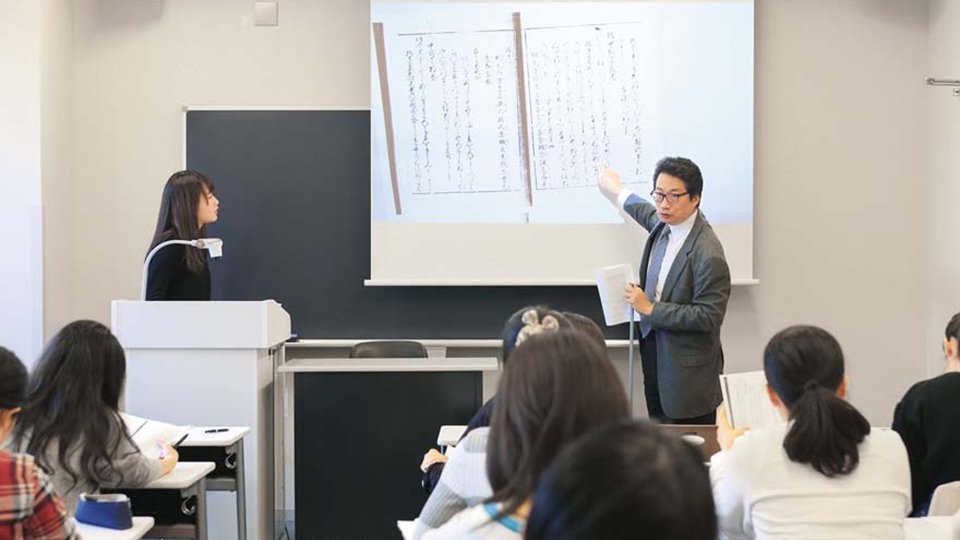
Third year: Students’ specialties are deepened through more sophisticated classes
Continuing from the second year, students study specialized subjects, and find the themes they wish to pursue. Seminars on the composition of graduation theses also start.
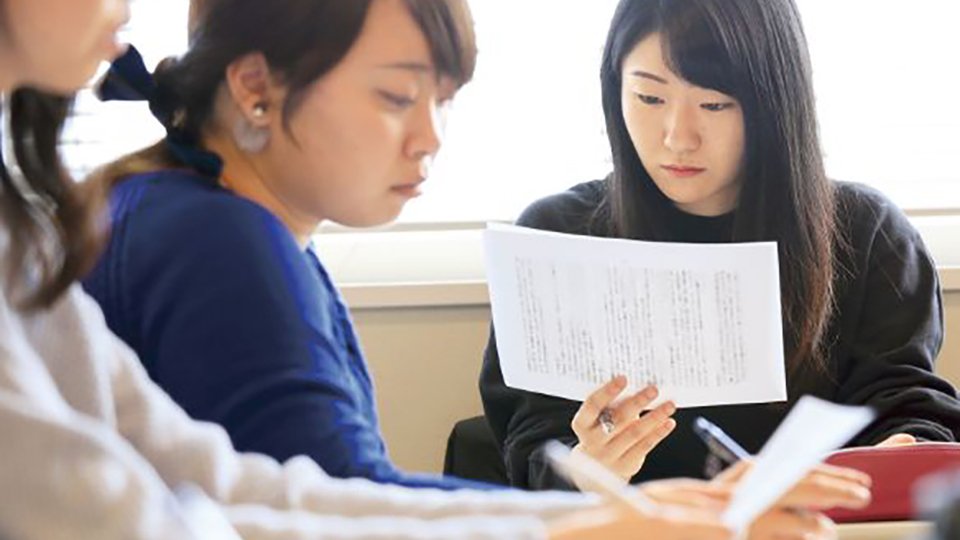
Fourth year: Pursuance of set theme and compilation of graduation thesis
Using all the knowledge regarding Japanese language and literature and abilities to express themselves in writing that they have cultivated, students pursue the themes they have set and write their graduation theses.
Class introduction
Early Medieval Japanese Literature Seminar I (second year upwards)
Researching and thinking about The Tale of Genji (Genji Monogatari); obtaining the ability to express oneself in an easily understood manner
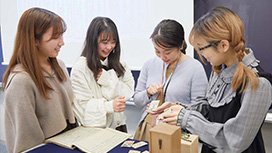
Associate Professor
Japanese literature
The classes in the Department of Japanese place an emphasis on conducting research using the background material and databases. By actually reading the published literature and searching through databases students become equipped with an ability to research widely and deeply.
On the Medieval Japanese Literature Seminar I, which can be taken from the second year, we read the Genji Monogatari. Reporters use dictionaries and annotated editions to decipher every corner of the work. With regard to themes or questions that students find particularly interesting, we go thoroughly into great detail using the published literature and databases.
We also take great care with the time allowed for post-presentation discussions. Questions such as “Which one did Genji love most, Lady Fujitsubo or Murasaki?” and “Lady Fujitsubo’s feelings are hardly referred to but did she really love Genji?” are raised sometimes leading to discussions of the very essence of the work.
Through repeated presentation and debate students incorporate good points made by other students, and I can feel them improving through constant effort. I hope the students themselves to become confident in their own powers and simply pursue their themes with no qualms about errors, and I try to provide an environment in which this is possible.
Faculty member introduction
Faculty members with a wide range of specialties provide education.


